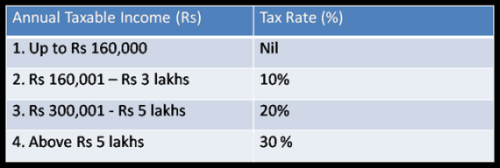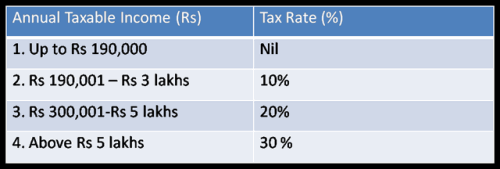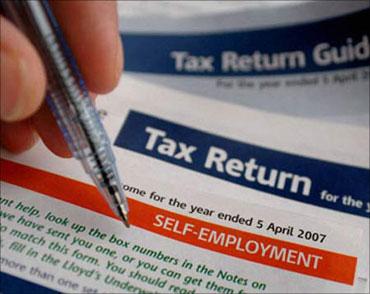 | « Back to article | Print this article |
FAQ: The benefits of filing income tax return
Investmentyogi.com lists some solid reasons for acquiring a PAN card (if you don't have one) and filing your ITR within the due date, which is 31st July every year.
We have heard many a times that every individual whose total income exceeds the maximum exemption limit is obligated to furnish his/her Income Tax Return or ITR.
But what is the benefit of filing ITR -- especially for those below 30 years of age or those not in the higher tax bracket? Why should any person voluntarily go and submit his income details to the tax authority? Isn't it more logical not to disclose income details and avoid paying tax altogether?
Click NEXT to read out the benefits of filing tax returns.
FAQ: The benefits of filing income tax return
Standard Income Proof: ITR is considered a customary income proof not only in India but also globally. If you are looking for higher education or employment abroad, ITR is the largely accepted income proof.
Speeds your loan application process: Apart from a good credit history (or past repayment track), the fact that you are filing your ITR regularly gives you speedier access to credit and at better terms -- although not necessarily a larger line of credit, but surely a better rate.
It also provides the impression to the financier that you are a law abiding citizen and will repay the loan within time.
Power of PAN: Permanent Account Number or PAN issued by the IT authority is not only a prerequisite for filing ITR but is also now mandatory for all financial transactions -- from opening a bank account, or purchasing mutual funds to real estate for investment. So it makes sense to get yourself one even if you don't have much income to boast of.
Claim your tax refund: Filing ITR is not always about paying tax. It can be used as a means to reduce your tax liability! Yes, you heard us right. Take for instance, salaried employees for whom TDS has been cut during the financial year can claim refund if the tax outgo has been more than the actual tax payable.
Important note:
Every person with taxable income (over and above the tax exemption limit) should file an income return, even if her/his tax liabilities have been taken care of by the employer through tax deducted at source (TDS); persons whose salaries have been subjected to TDS are also required to file return because they may have earned from sources other than salary (house property income, capital gains, etc.).
The entire tax payable on your income has to be paid before filing the return of income either by way of tax-deducted at source (TDS), advance tax or self-assessment tax. Ensure that it is done before the ITR is filed.
Not only for refund, you also need to file your income return if you are claiming carry forward of loss (say, from long term capital asset or from any other source of income). In such cases, filing returns within the due date is a must.
Avoid wilful tax evasion: In certain cases, you may even be liable for prosecution for intentional avoidance of tax payments. 'Better late than never' is the best policy when it comes to income tax payment.
Click NEXT to read the FAQ
FAQ: The benefits of filing income tax return
Popular FAQs of income tax return filing:
What is financial year, previous year and assessment year?
Taxyogi: For the purpose of calculating income tax, financial year (FY) is the period during which the income has been earned. The income earned in a FY is assessed to tax in the following year, that is, the assessment year (AY).
For example, income earned in FY 2009-10 (April 1, 2009 to March 31, 2010) will be assessed for tax in the year 2010-11. FY and previous year are the same; they are used interchangeably.
Tax gets deducted from my salary every month (by way of TDS). Do I still need to file ITR?
Taxyogi: Yes. Filing of tax is compulsory for every person whose gross total income, that is, the income under the five heads (salary, house property, capital gains, business income, and other sources) before allowing for any deductions (under chapter VI A of Income Tax Act, 1961), exceeds the basic income tax exemption limit (IT Rate slab given at the end of the article).
Click NEXT to read more FAQs
FAQ: The benefits of filing income tax return
What if I miss the deadline of July 31st?
Taxyogi: If there are no balance taxes to be paid, no interest or penalty will be levied if you file your return in less than 1 year from the end of the relevant assessment year (AY). However, there is a penalty of Rs 5,000 if you fail to file by that date. In case there are tax arrears, a penalty of 1 pr cent per month will be charged as interest on such taxes due.
TDS is NIL on my income. Do I have to file return?
Taxyogi: It is not mandatory to file your IT return if your taxable income is below the maximum exempted limit. However, if your gross total income exceeds the basic exemption limit, then you have to file a tax return even if no tax was deducted at source.
I don't have a PAN card. Can I file my income return?
Taxyogi: The Permanent Account Number (PAN) is a compulsory for filing your ITR. If you have not obtained a PAN card till now, you should immediately apply for one.
What is advance tax? How is it different from ITR filing? Is there a penalty if I don't pay this tax?
Taxyogi: Advance tax means 'payment of tax in advance'. Payment of advance tax is compulsory on the income earned during the financial year for every person liable to pay tax in India. Non-payment or short payment of advance tax will attract penal interest.
However, there is no need to pay advance tax if:
i) The total tax liability for the financial year is less than Rs 5,000; or
ii) If the employer has deducted TDS from the salary.
Click NEXT to read how you can file your returns
FAQ: The benefits of filing income tax return
Where do I file my return?
Taxyogi: Filing of ITR can be done in 2 ways:
i) Offline/Traditional paper filing: Traditional filing involves hiring a CA or a tax consultant to file tax returns, or personal submission of forms by visiting the nearest Income Tax Office (ITO).
ii) Online filing: Online or E-filing was enabled by the Income Tax Department a couple of years back. It is an improved and hassle-free method of tax filing; here, filing is done through the Internet. E-filing of IT Returns can be done with or without a digital signature. Logon to www.TaxYogi.com for filing your tax returns online.
Income Tax slabs/Basic Exemption limits for individuals for FY 2009-10 (AY 2010-11):
(a) Male Assessees (< 65 years of age):

(b) Female Assessees (< 65 years of age):

(c) Senior Citizens (> 65 years of age):






